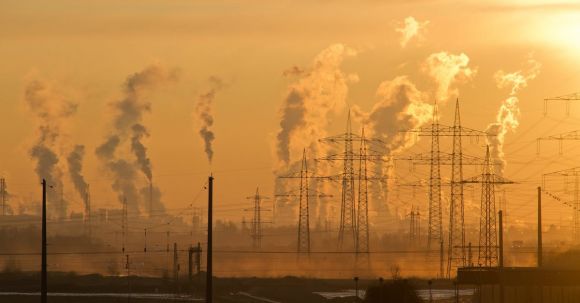The urgent need to address climate change has become a global priority, with governments, organizations, and individuals all striving to make a positive impact. In the United Kingdom, industries are playing a crucial role in this fight, as they have the power to drive significant change and contribute to a more sustainable future. This article explores the various ways in which UK industries are taking on the challenge of tackling climate change.
Transitioning to Renewable Energy Sources
One of the most significant steps UK industries are taking to combat climate change is transitioning to renewable energy sources. Traditional energy production, such as coal-fired power plants, is a major source of greenhouse gas emissions. However, many industries in the UK are now embracing cleaner alternatives, such as wind, solar, and hydroelectric power. By shifting to renewable energy sources, these industries are reducing their carbon footprint and helping to mitigate climate change.
Implementing Sustainable Practices
Another important aspect of UK industries’ role in tackling climate change is the implementation of sustainable practices. Many businesses are adopting eco-friendly initiatives, such as reducing waste, improving energy efficiency, and implementing recycling programs. By integrating sustainable practices into their operations, industries are not only reducing their environmental impact but also setting an example for others to follow.
Investing in Research and Development
UK industries are also investing in research and development (R&D) to find innovative solutions to climate change challenges. By funding R&D projects focused on renewable energy, carbon capture and storage, and sustainable technologies, industries are contributing to the development of groundbreaking solutions that will have a lasting impact on mitigating climate change.
Collaborating with Government and NGOs
Collaboration between industries, government agencies, and non-governmental organizations (NGOs) is crucial in addressing climate change effectively. UK industries are actively engaging with these stakeholders to develop strategies, share knowledge, and implement policies that promote sustainable practices. By working together, they can amplify their impact and drive meaningful change on a larger scale.
Promoting Green Initiatives
UK industries are also playing a vital role in promoting green initiatives to the wider public. Many businesses are actively raising awareness about climate change and the need for sustainable practices through educational campaigns, public events, and partnerships with environmental organizations. By engaging with consumers and encouraging them to make eco-friendly choices, industries are fostering a collective responsibility towards the environment.
Driving Policy Changes
In addition to implementing sustainable practices within their own operations, UK industries are also driving policy changes to support the fight against climate change. By advocating for stricter regulations, higher emission standards, and incentives for renewable energy adoption, industries are influencing government policies to align with sustainability goals. These policy changes create a supportive environment for industries to further their efforts in combating climate change.
Conclusion: The Collective Effort
Tackling climate change requires a collective effort that encompasses governments, organizations, and individuals. UK industries are at the forefront of this battle, taking significant steps to reduce their environmental impact, promote sustainable practices, and drive policy changes. Through their transition to renewable energy, implementation of sustainable practices, investment in R&D, collaboration with stakeholders, promotion of green initiatives, and advocacy for policy changes, UK industries are playing a vital role in tackling climate change. Their commitment and dedication are crucial in creating a more sustainable future for generations to come.





